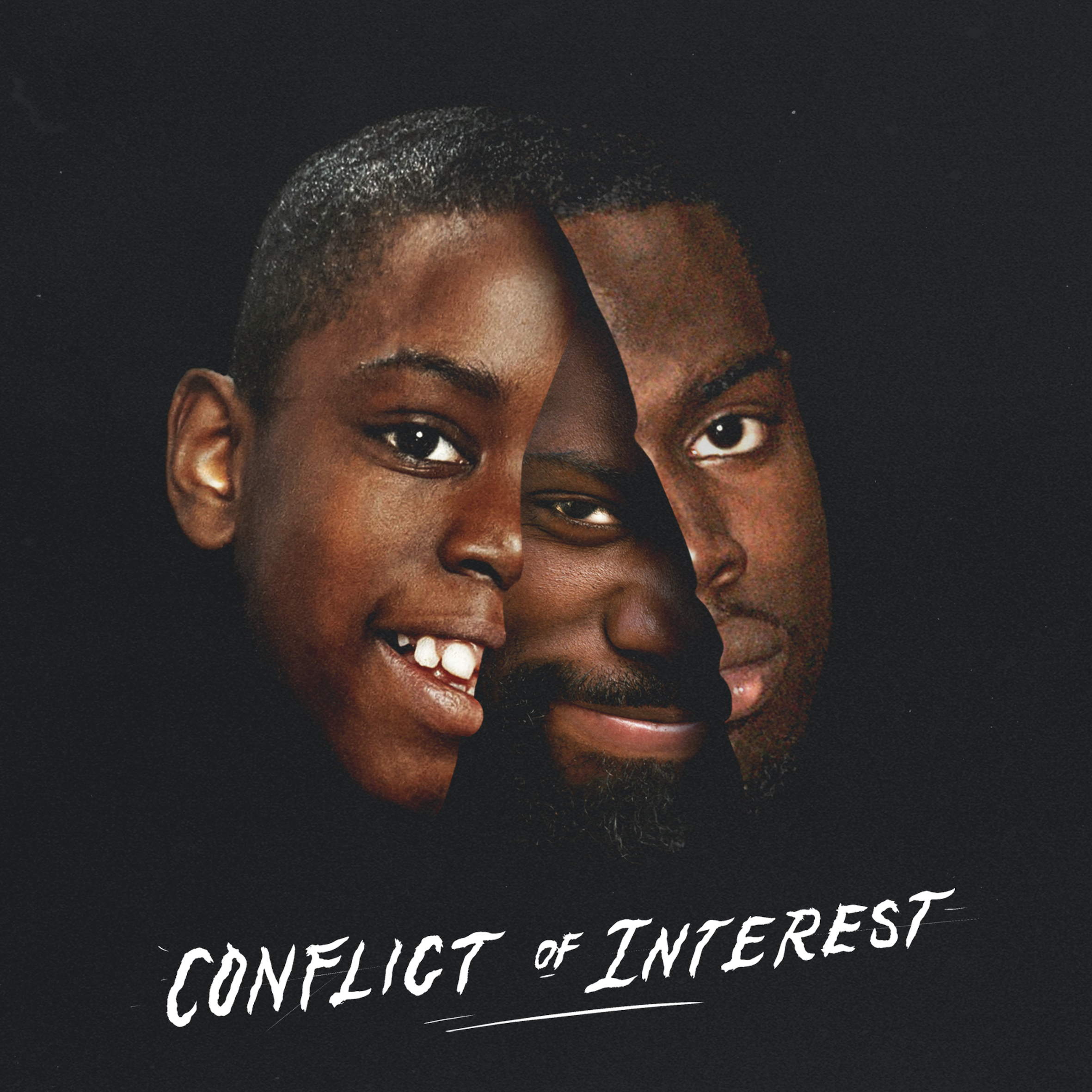Ghetts Conflict of Interest

On Conflict Of Interest, grime forefather Ghetts delivers one of the most consistent and confidently inventive projects of the genre’s ‘adult’ era. Many of his contemporaries have grappled with the task of representing growth, reflection, family and responsibility within the framework of grime, while also attempting to retroactively document the development and historical context of the scene. Results have often felt somewhat fractured – half-hearted or misdirected in their execution, or pandering to irrelevant external forces. Though the album certainly doesn’t avoid all of these pitfalls entirely, it excels convincingly for large sections of its runtime.
It excites most when it defiantly embraces the theatrical breadth of its central figure. Ghetts has long been accepted as one of most technically gifted MCs the UK has produced, and across the record his eccentric approach toward switching up flows and vocal stylings is key to the focused feel of the narrative arc. At its best, the redemptive, reflective outlook of the record and its time-spanning character-play evokes the enthralling pull of Kendrick Lamar’s good kid, m.A.A.d city; the cinematic instrumentation functions as set design, but it often feels like you could strip away the lush arrangements and there would still be the central force commanding the audience’s attention.
The opening six tracks display a deft tonal balance that allows the honesty, uncertainty, defiance and doubt to merge in a satisfyingly human way. Second track ‘Mozambique’ is almost a separate suite in itself, laying the ever-shifting groundwork of the record. The gorgeous synths and weighty low-end rolls along gloriously, while a g-funk whine tastefully elevates everything to the next level. The following tracks segue together in surprising ways, leaving you unsure where certain tracks begin and end.
Another key parallel to the aforementioned Kendrick Lamar project is how well the guests complement the tonal landscape of the record, playing characters that exist within the world, rather than distracting from it. This is evident with Jaykae and Moonchild Sanelly on ‘Mozambique’, or Skepta, Giggs, Pa Salieu or BackRoad Gee on later tracks. Unfortunately this isn’t the case throughout the record: the Ed Sheeran and Emeli Sandé appearances at the centre of the album certainly jar, and represent an overall dip in quality during the centre of the project. The light UK garage excursion of ‘Good Hearts’ is a near-miss; a fun feature from Mighty Moe of Heartless Crew is used to blend the track into the narrative of the record, yet overall it sticks out without adding anything new, or being a particularly catchy pop song at that. The following tracks reject the open-ended tone of the earlier songs, leaning on heavy-handedly melodramatic instrumentation that does disservice to the themes on display.
The album finds its way again on undeniably effective tracks like ‘Crud’ featuring Giggs, which is a display of effortlessly pure microphone control over the most glacial beat on the record. Album closer ‘Little Bo Peep’ is again a little overdramatic in its string arrangement, and Hamzaa’s guest vocal pushes this to the limit, but the matter-of-fact approach to the verses is bluntly effective, drawing themes from the record together in a final act. It is, however, a little let down by the obviousness of the instrumental.
It’s a shame that it doesn’t necessarily maintain its quality throughout, though even the lesser points are well-crafted and have clear reasoning for their inclusion. Ultimately, the high points more than make up for any shortcomings; this an at-times-stunning album that balances bangers and heart in an endearing and enduring fashion.